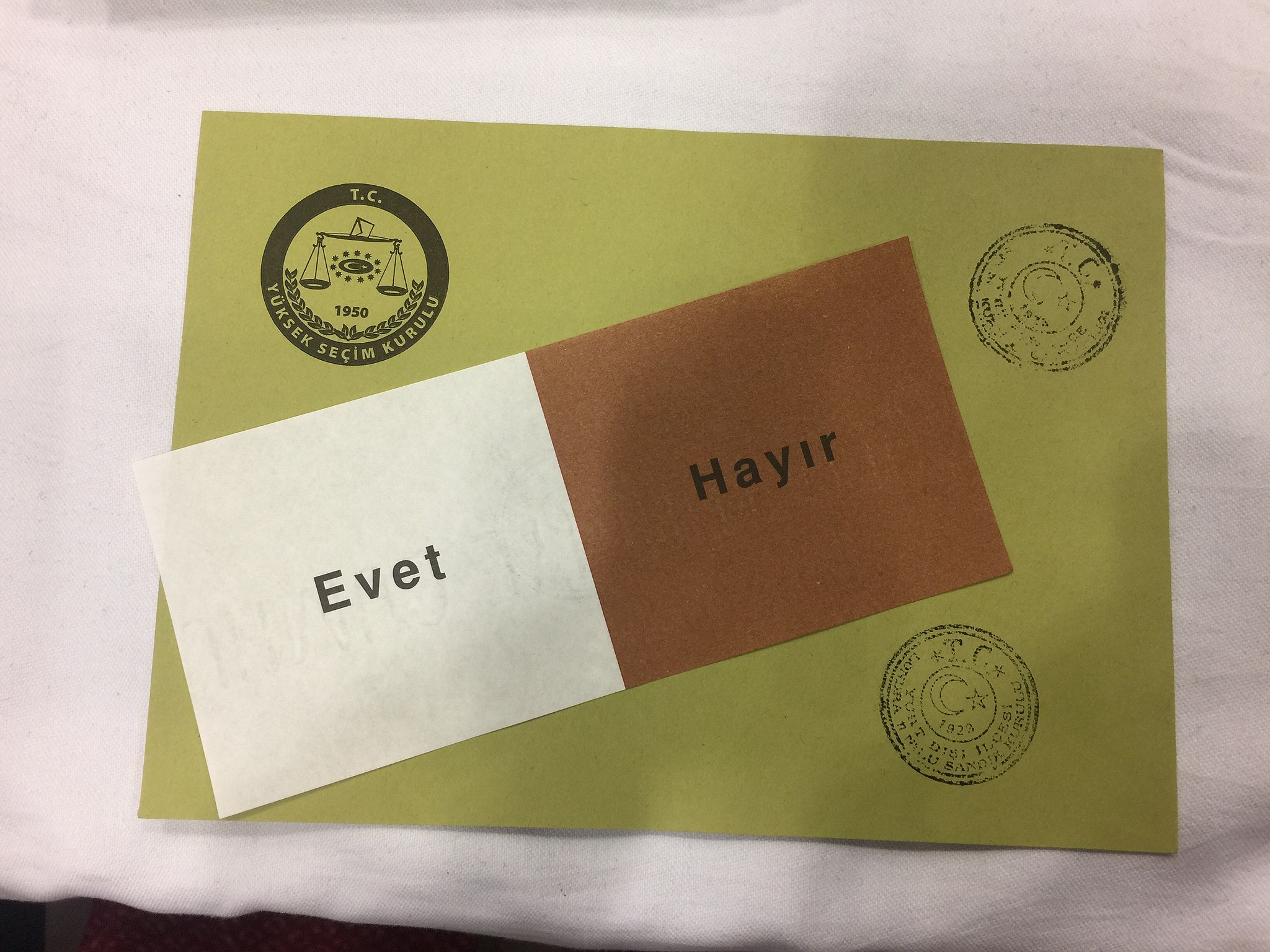
In the aftermath of unprecedented terrorism in Turkey last month, social networking sites (SNS) are engaged in fierce political debate over the ruling party's attempt to replace the current parliamentary system with a presidential system. The change is expected to grant President Recep Tayyip Erdoğan authority over the executive branch and lead to increased centralization of the government. The discourse on SNS affords a glimpse into the political opinions of rival camps.
The failed military coup of July 15, 2016, and the resulting mass demonstrations against military intervention in Turkish politics, significantly strengthened the standing of Erdoğan and his former political party, the Justice and Development Party (AKP). Erdoğan took advantage of these waves of support to strengthen measures against the Kurdish political movement, arresting the Peoples’ Democratic Party (HDP) leaders in November. This marked the beginning of a pact between Erdoğan and the Nationalist Movement Party (MHP), led by Devlet Bahçeli. With the reinforcement of Turkish identity and the position of Islam in the public sphere, the ideological gap between the parties is narrowing, allowing MHP to support AKP's political agenda.
As the primary item on of its political agenda, AKP is utilizing MHP's support to attempt to introduce a presidential system, centralizing the Turkish political system. Such an amendment would require a majority of 367 votes to be cast in favor. Because the combined AKP and MHP bloc are 11 votes short of that number, they have instead proposed a national referendum, which requires only 330 votes in favor. The referendum is expected to encompass a comprehensive package of reforms. The primary reform would transform the parliamentary system into a presidential one, weakening the system of checks and balances. Other reforms included in the package would strengthen the judiciary's executive branch and change the judicial appointment process.
Although MHP was successful in recruiting the votes necessary to conduct the referendum, which is scheduled for April 2017, resistance to party chairman Bahçeli is being voiced within the party. Led by Meral Akşener, thirteen of the party's parliamentarians have decided not to support the reform package. Opposition was also expressed on SNS, where ordinary users and Turkish celebrities called upon members of MHP to oppose the referendum. They attacked the chairman as “a traitor that sold himself to Erdoğan.” In response, supporters of Bahçeli accused the leaders of internal party opposition of divisiveness and called on the party's supporters to back Bahçeli.
Unsurprisingly, Erdoğan's supporters contributed to Bahçeli's online support. They posted graphics portraying the two as leaders cooperating to advance Turkey. Supporters of Erdoğan added that the amendments would make it possible to eradicate elite influence from Turkish government (see picture).[1] In order to justify support for the package of reforms up for referendum, users claim that the opposition of secular Turks and international powers – such as the United States, Great Britain, and Israel – to the proffered presidential system emerges from “a lack of desire to see a stronger Turkey.” They also claimed that “all citizens of Turkey must support the package of reforms.”[2]
The secular camp, depicted as plotting Turkey’s demise, responded with the counterclaim that drastic shifts would result in a regime change, and not improved governance. From their perspective, the proposed reforms would lead to the death of the Republic, replaced with a Sultanate headed by of Erdoğan. Like some nationalist users, some secular voices also criticized Bahçeli’s behavior. There were even those who claimed that Erdoğan possesses compromising recordings of Bahçeli that leave him open to extortion, motivating the agreement.[3] In addition to these conspiracy theories, many secular Turks expressed frustration with the parliamentary proceedings. They called on the Turkish people to preserve the values of Atatürk, the republic's founder, by strongly opposing the reforms presented in the referendum. Many users in this camp changed their profile pictures to a graphic of the word “No” (“Hayır” in Turkish) and called for voters to “Oppose the dictatorship” using the hashtag “We are rising up – If not now…when?” Although their goal is to evoke a popular uprising, they have not yet had much success.[4] Secular users also expressed opposition to the parliament's legislative moves, claiming that the post-coup state of emergency was an attempt to stifle democracy.
Analogous to the online tumult, parliament was thrust into chaos. At one point, members of the secular Republican People’s Party (CHP) stormed the podium in an attempt to halt the vote on sections of the referendum's reforms. The uproar that followed ended with one broken nose, complaints of being bitten, and the podium's destruction. SNS users responded by expressing their anger at the members of Parliament, who they accused of childlike behavior.[5]
At this stage, the Kurds are avoiding taking an official stance on these political issues, despite their reflexive opposition to Bahçeli and his party. This response is apparently a product of the apathy of many in HDP to the reforms. Ironically, a few Kurdish users do support the presidential system, in the hope that subjecting Erdoğan to fewer political pressures would bring him back to the negotiating table.
Public discourse on Turkish SNS reveals how the political attempt to institute a presidential system is perceived as a means to reinforce Erdoğan’s status. Among Turkish users, there are many who are critical of these moves, unswayed by nationalist justifications. It is important to note the strong, even violent, opposition in parliament by those who consider the referendum an affront to the Republican nature of Turkey. However, this opposition plays into the hands of Erdoğan, who is essentially leaving the dirty work to his supporters in parliament. By doing so, he successfully maintains a presidential image despite the tumultuous atmosphere.








